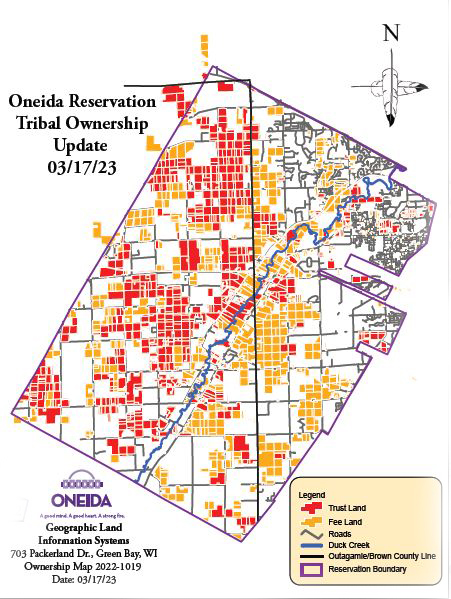
By Kris Leonhardt
Editor-in-chief
Continued from last week
Since the passage of the Indian Reorganization Act, the Oneida Nation has worked to reacquire ownership of land in the reservation boundaries and grow and strengthen government programs and services.
“Anti-Indian policies continued with the Termination Act of 1953 and the Indian Relocation Act of 1956,” Bill Gollnick, Oneida Nation former general manager/strategist.
Through those acts, the government sought to do away with reservations and move Native Americans into an urban culture, but the Oneidas continued to grow their community and introduce new tribal services.
“(Then) Nixon proclaimed an era of Indian Self-Determination — 1972 saw the passage of the Indian Education Act and 1975 brought the Indian Self-Determination and Education Assistance Act,” Gollnick added.
Nixon’s policies were set forth to replace “termination” with “self-determination” and were presented in a special message to Congress in July 1970.
“The first Americans — the Indians — are the most deprived and most isolated minority group in our nation. On virtually every scale of measurement — employment, income, education, health — the condition of the Indian people ranks at the bottom,” Nixon told Congress.
“This condition is the heritage of centuries of injustice. From the time of their first contact with European settlers, the American Indians have been oppressed and brutalized, deprived of their ancestral lands and denied the opportunity to control their own destiny. Even the Federal programs which are intended to meet their needs have frequently proved to be ineffective and demeaning.”
Oneidas now had direction in their own educational and service programs.
“Indians were going to real schools and developing skills to lead and succeed,” Gollnick said.
“Oneida went from five employees and a three-figure annual budget to over 3,100 employees.
“We developed health facilities, elderly facilities, social service programs, a K-12 school system, a police department…”
As of July 2023, the Oneida Nation has 24 offices cross-deputized with the Brown County Sheriff’s Department, funded primarily through the tribe, with assistance from federal and state funding, and a tribal judicial system composed of tribal, family and appellate courts, with 11 judges elected in staggered terms.
The Nation’s youth are educated in five primary school districts — Freedom, Green Bay, Pulaski, Seymour and West DePere — as well as two tribal schools — Oneida Nation Elementary and Oneida Nation High School.
The Nation also provides clinical services, children and family services, elderly services, food distribution, child support enforcement, community support programs, head start and social services.
The tribe is also the owner of multiple businesses, including the Bay Bank, Oneida Casino, Oneida One Stop, Thornberry Creek at Oneida, Oneida Apple Orchards/Farm, Tsyunhehkwa Retail, Oneida Seven Generations Corporation and Oneida Total Integrated Enterprises.
Of the approximately 3,100 Oneida Nation employees, 42% are non-native and 58% are native.
